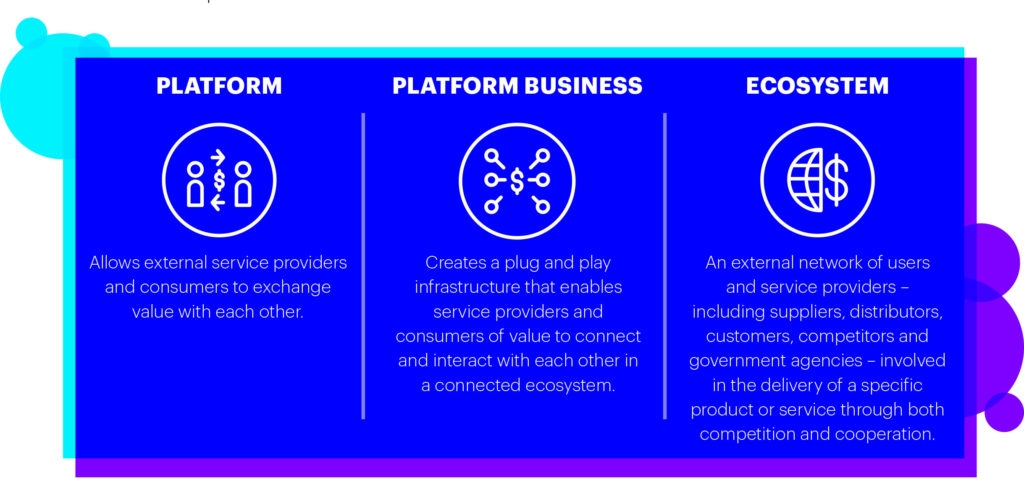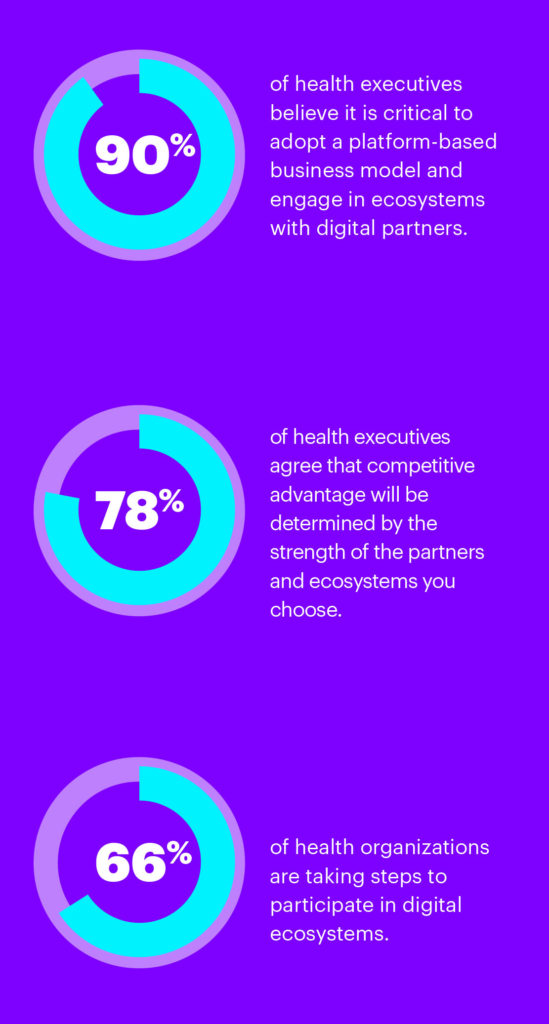
The DFW Hospital Council (DFWHC) is posting blogs submitted by our Associate Members. The following is the second of a series provided by Accenture. For guidelines, please contact Chris Wilson at chrisw@dfwhc.org.
The Accenture Digital Health Technology Vision explores five trends that underscore the importance of technology for people:
• Trend 1—AI is the New UI: Healthcare Experience Above All
• Trend 2—Ecosystem Power Plays: Beyond Health Platforms
• Trend 3—Workforce Marketplace: Invent Your Future Healthcare Workforce
• Trend 4—Design for Humans: Inspire New Behaviors
• Trend 5—The Uncharted: Redefining the Rules of Healthcare
In this series of blog posts, we will show how these trends demonstrate that while technology is all around us, we are at the center. When we adapt technology to the people who use it in healthcare—health insurers, providers and consumers—we will define the future of healthcare.
Join DFWHC and Accenture for a Digital Health Technology Vision webinar on Thursday, January 25, at 2:00 p.m. Central.
Trend 2—Ecosystem Power Plays: Beyond Health Platforms
Healthcare enterprises are increasingly integrating their core business functionalities with third parties & their platforms.
But rather than treat them like partnerships of old, forward-thinking healthcare leaders use these relationships to build their role in new digital ecosystems—unlocking their next waves of future growth. As they do, they’re designing future healthcare value chains that will transform their organizations, services, and even the market itself.
Healthcare is the sum of many parts. There are systems that pay for, coordinate and deliver care. There are also systems that help people self-manage a lifestyle goal or healthcare condition. Platforms provide the connected infrastructure that enables service providers and consumers to exchange value, but it’s not enough. Today, healthcare enterprises also need a rich and robust portfolio of digital partners to form their future business ecosystems.
These new ecosystems will extend beyond technology to connect the capabilities, expertise and services that touch healthcare organizations, consumers and clinicians. Healthcare organizations that take a leadership role in transformation realize that the strategic platform and ecosystem decisions they make today determine their future success—or lack of it.

Connections Fuel Success
Healthcare organizations have begun to realize that healthcare should be organized around the patient, not the enterprise.
Therefore, currently fragmented ecosystem participants should figure out how to work together to meet rising expectations. Historically, independent entities, such as hospitals and doctors, focused on the functions within their control. Now, ecosystem players realize that they are in many ways dependent on those who provide services before and after they do, independent of physical location.
Collaboration can improve loyalty and market share at a time when there is increasing pressure to drive down the cost of care. What’s more, ecosystem collaboration will maximize productivity across the continuum of care—from admission to post-acute care.
New opportunities for collaboration are giving rise to non-traditional partnerships. Major health systems are joining forces with consumer technology companies to receive “breaking news” alerts about patients. Providers are working with mobile app providers to create app stores of evidence-based applications.
Telemedicine startups are working with major health systems to build platforms that help solve clinical and administrative challenges. Life sciences giants, pharmacy benefit managers and technology companies are collaborating to meet the needs of the under-insured.
Healthcare enterprises can integrate their core functionality with digital platforms through application programming interfaces (APIs), making it easier for all to plug into and play in the broader ecosystem, facilitating patient-centered care.

Better Together
Fragmentation leads to poor outcomes. Therefore, ecosystem participants will increasingly work together to meet objectives and make progress. Today, governments and private sector companies are working together on major genome and biome initiatives to better understand, and ultimately treat, various diseases and conditions—from autoimmune disorders to obesity. Partnering can be a differentiator when collaborators work together to provide a service that addresses an unmet need.
By pooling resources and information, companies can deliver differentiated joint offerings. For instance, health plans are collaborating with providers to deliver virtual care services and integrated care delivery models to market. Health plans are also collaborating with consumer technology platforms to bring simple, convenient services to people on mobile platforms. Some are even going the extra mile, working with ride sharing services to provide patients with reliable transportation to and from their healthcare appointment.

Giving Care a Lift
The CareMore Health System, the integrated health plan and delivery system, has partnered with Lyft to provide non-emergency medical transportation for Medicare Advantage and duals beneficiaries. Based on data published in JAMA, individuals using the service wait less than nine minutes to be taken to their medical appointment—that’s a 30 percent reduction in wait times. Costs have also dropped from about $31 per ride to $21.
By working together, CareMore and Lyft are addressing a major problem in healthcare: lack of access to consistent, affordable transportation. An estimated 3.6 million Americans miss or delay receiving nonemergency care each year due to transportation challenges. Individuals with the highest burden of chronic disease are often those with the greatest transportation barriers.
Integrated Disease Management
Onduo is a platform that connects multiple stakeholders involved in diabetes management— clinicians, payers and healthcare professionals—to help develop comprehensive diabetes solutions that allow people with diabetes to lead full, healthy lives.
A joint venture of Sanofi and Verily, Onduo is positioned to deliver precision care management by leveraging the deep experience of Sanofi and rapid iterative testing and analytics of Verily.
About Accenture Insight Driven Health
Insight driven health is the foundation of more effective, efficient and affordable healthcare. That’s why the world’s leading healthcare providers and health plans choose Accenture for a wide range of insight driven health services that help them use knowledge in new ways—from the back office to the doctor’s office. Our committed professionals combine real-world experience, business and clinical insights and innovative technologies to deliver the power of insight driven health. For more information, visit: www.accenture.com/insightdrivenhealth.
Accenture is in no way promoting or intending to market any one particular solution or product or otherwise offer or market a medical device or clinical solution. Each company uses its own operations to ensure compliance with applicable laws and regulations.
Accenture – Technology for People Part 2
12/06/2017